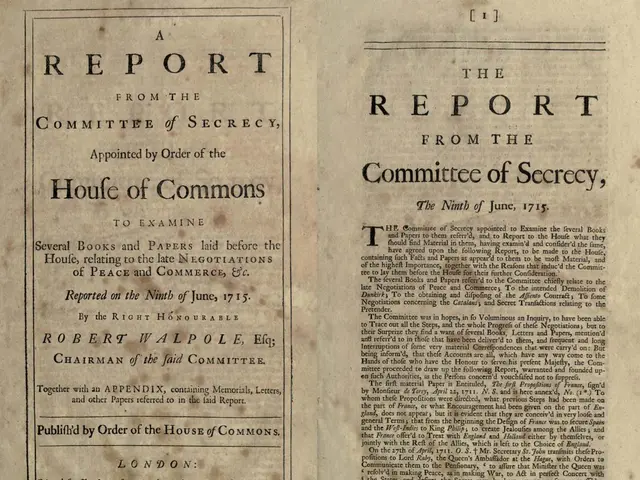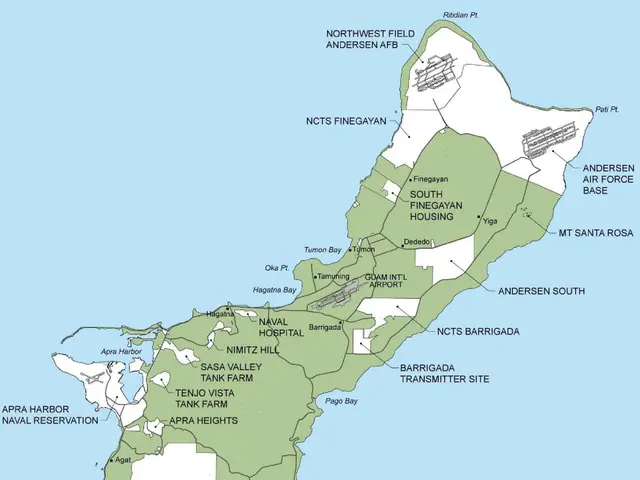U.S.-U.K. Trade Association: Advantages Hinge on Additional Accords
In a turn of events, Bank of England Governor Andrew Bailey has labeled the UK-US trade deal as "good news," yet he warns that the UK's economic future remains significantly influenced by agreements the US forges with its other trading partners.
At a Reykjavik event, Bailey expressed approval of the partnership struck between Donald Trump and Keir Starmer on Thursday. Their efforts lowered trade barriers in sectors like steel, cars, and agricultural produce. However, Bailey tempered his enthusiasm, stressing that barriers to free trade between the UK and US are elevated since Trump's presidency.
"It's good news," Bailey admitted, "but I have to say it's good news in a world where it will leave the effective tariff rate higher than it was before all this started."
The day after the deal's initial details emerged—the first pact any nation has secured with the US since April 2nd, when Trump declared 'Liberation Day'—the BoE's Monetary Policy Committee decided to slash the Bank Rate by 25 basis points.
In conjunction with the rate cut, the BoE released new estimates indicating that, by April 29th, Trump's tariff regime would impose a 0.3% hit on the UK economy over three years. The impact was predominantly attributed to America's tariffs on other countries and the slowdown they will trigger on the global economy.
During a subsequent question-and-answer session regarding 'monetary policy in uncertain times,' Bailey emphasized that the UK's economic future relies not only on the UK's trade agreement but also on decisions reached by the global community.
The Inside Scoop on the Deal
Under the agreement between Starmer and Trump, tariffs on UK steel and aluminum exports will plummet from 25% to zero. Car exports faced a 10% reduction, down from 27.5%, for the first 100,000 vehicles exported to the US. The deal also gestures toward lowering trade barriers on goods like aeroplane engines and agricultural products such as beef and bioethanol.
A Mixed Bag for the UK Economy
Bailey's appraisal of the deal follows his insistence that strengthening economic ties with the EU is crucial for the UK's success. In a BBC interview after the BoE rate decision on Thursday, he stated that having a more open economy with the EU would be advantageous, as trade with the EU has noticeably declined over recent years. Bailey hopes that the new UK-US trade deal can help pave the way for reconciliation between the two nations.
The Takeaway
Though the UK-US trade deal undoubtedly carries benefits such as increased market access and strengthened cooperation, it is encumbered by maintaining a 10% tariff on imports, which increases costs for both consumers and businesses. This burden on consumers, as well as potential restrictions on global economic growth, moderates the deal's positive effects. In the long term, while the UK-US trade deal symbolizes a step ahead for bilateral relations, barriers to full-blown free trade and the deal's indirect impact on the global economy could limit its transformative potential.
- The UK-US trade deal, as labeled by Bank of England Governor Andrew Bailey, represents a step forward for bilateral relations, yet it maintains a 10% tariff that increases costs for both consumers and businesses, potentially limiting its transformative potential.
- The UK's economic future, according to Bailey, is influenced not just by the UK-US trade agreement but also by decisions made by the global community, including agreements the US reaches with its other trading partners in the banking and finance sector.
- The UK-US trade deal, which lowers tariffs on UK steel and aluminum exports and car exports while also aiming to lower trade barriers on goods like aeroplane engines and agricultural products, is seen as a mixed bag for the UK economy by some economists, as it carries benefits such as increased market access and strengthened cooperation but also poses risks to consumers and potential restrictions on global economic growth.




